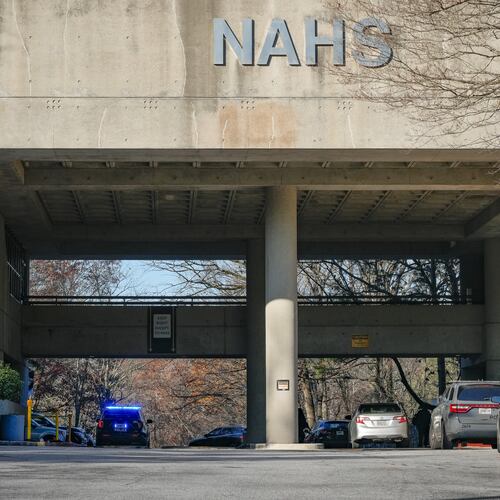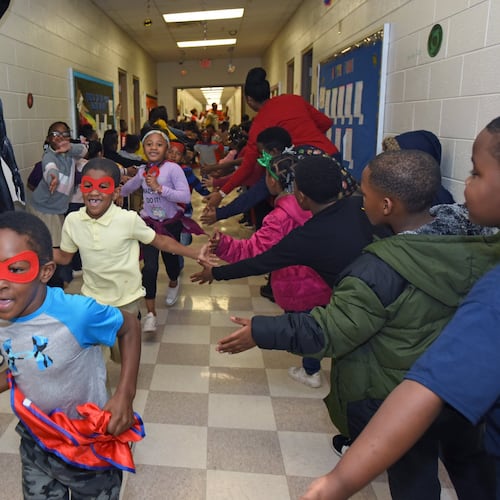On Sept. 4, two students and two teachers were killed in a shooting at Apalachee High School. Fortunately, the school’s school resource officer confronted the shooter, and he surrendered. This tragedy led to a statewide discussion on how to keep children safe in school.
Many politicians have come forward to say that every school should have an SRO. While it was amazing that this hero stepped in to prevent more lives from being lost, I believe there is a better way to protect schoolchildren.
There is no doubt the Apalachee High School SRO ended this shooting, but this case is the exception, not the rule. Though SROs decrease on-campus fighting and threats, there is no reduction in other violent offenses. Thus, SROs will not reduce gun violence at schools they aim to protect. In fact, in shootings and attempted shootings at schools, the rate of deaths was 2.83 times greater in those schools with an armed guard present.
Schools with SROs see rises in suspensions, expulsions, police referrals and arrests increase. Officers routinely address conduct that is not illegal nor requires law enforcement. The Georgia Department of Juvenile Justice states one duty for SROs is “Addressing students who are disruptive, inappropriately dressed, late, and/or absent.” Atlanta Public Schools claim they “Diminish classroom time spent on discipline and behavioral disruptions.”
Essentially, if a student disturbs class, wears something inappropriate, or shows up late, teachers can call SROs rather than handling the issue on their own. And when they do show up, SROs come armed and ready to engage. Except, middle schoolers aren’t hardened criminals. They’re 12,
Credit: Contributed
Credit: Contributed
We also know that unreasonable escalations and disciplinary actions disproportionately impact Black students, boys, and students with disabilities. We are lucky that some instances of SRO brutality against these students go viral online, but most go unchecked.
Negative interactions with SROs make school uncomfortable at best and dangerous at worst. A suspension, expulsion or arrest potentially alters the trajectory of a student’s life. Colleges ask every student whether they have ever been suspended, expelled or arrested. So do some jobs. Exchanges with SROs also take a mental toll on kids. Being arrested or even assaulted is psychologically traumatizing.
These increased punishments perpetuate the school-to-prison pipeline. Students who experience severe disciplinary actions are more likely to end up incarcerated. Because SROs increase suspensions, expulsions and arrests, and also disproportionately target students of color and disabled students, we are setting up our most vulnerable for failure.
One reason SROs can’t handle simple situations is obvious: they receive minimal specialized training. Georgia requires that SROs take a 40-hour course on their role and expectations. While officers learn how to navigate typical interactions, their training falls short of managing biases or more nuanced situations.
In addition to SRO training, schools should reevaluate their priorities. About 14 million students in America attend schools with an SRO but not a nurse, counselor, social worker or psychologist. Before we hire more SROs, we need well-paid professionals who can address children’s physical and mental health. Georgia has a 396-1 student to counselor ratio, despite the American School Counselor Association’s 250-1 recommendation. This is unacceptable.
School districts should use money spent on hiring excessive SROs to fund programs that improve student well-being. We could invest in free lunch, after-school programs and classroom supplies to create a happier learning environment with better relationships between students and staff. In Chicago, research indicates that schools with the best student-staff and parent-staff relationships are also safest.
Next, every SRO should undergo training that ensures they treat students of all backgrounds fairly. We should track every interaction between SROs and students. If specific SROs restrain or arrest a disproportionate amount of Black students, the validity of each exchange should be scrutinized. They should also learn about disabilities and associated behaviors.
We must limit expectations. There should be guidelines for when it is appropriate to call SROs for assistance. Let students make mistakes like leaving school property, throwing paper airplanes or a student with autism poking their classmate with a pencil without ending up handcuffed and in the back of a cop car.
In general, stop asking cops to intervene in nonviolent behavior. “Disorderly conduct” is just a fancy way of saying that a child is acting like a child. Clayton County approved a cooperative agreement to instruct schools on handling “misdemeanor delinquent acts” with little or no SRO participation. By setting boundaries, Clayton saw a drop in fights and disorderly conduct.
If we care about our kid’s safety, there are ways to help. These suggestions would make schools a better place for children to learn. Hiring more SROs would not. They aren’t even a Band-Aid on a bullet wound. They’re the metaphorical salt in that wound, exacerbating unsafety for everyone but especially minority and disabled students. The Apalachee High School shooting was a tragedy, and the way we move forward matters if we truly want schools to be safe for our children.
Ella Colker is a political science and international affairs student at the University of Georgia and committee chair on campus services within the Student Government Association Senate.
About the Author
Keep Reading
The Latest
Featured




